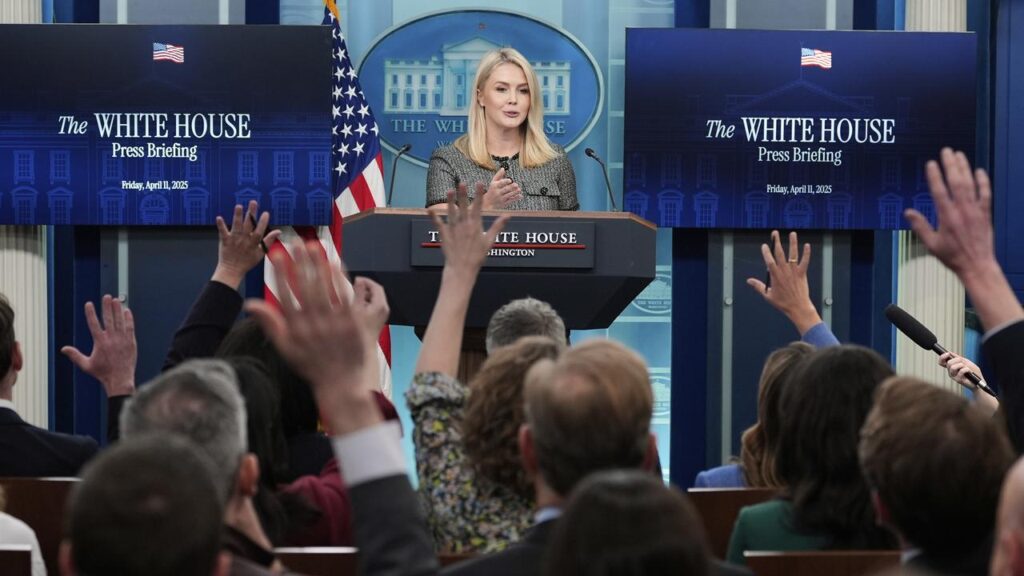China retaliates again in Trump’s escalating trade war
Joe Cash, Karin Strohecker and James Oliphant |

Beijing has increased its tariffs on US imports to 125 per cent, hitting back against President Donald Trump’s decision to raise duties on Chinese goods and upping the stakes in a trade war that threatens to upend global supply chains.
The retaliation on Friday intensified global economic turmoil unleashed by Trump’s tariffs. US stocks ended a volatile week higher, but the safe haven of gold hit a record high during the session and benchmark US 10-year government bond yields posted their biggest weekly increase since 2001 alongside a slump in the dollar, signaling a lack of confidence in America Inc.
One US survey of consumers showed inflation fears have mounted to their highest since 1981, while financial institutions have been forecasting an ever greater risk of recession.
Trump downplayed the market turbulence, predicting the dollar would strengthen and saying many tariffs could settle in around 10 per cent once the United States cut trade deals with all the countries that want to negotiate.
“When people understand what we’re doing, I think the dollar will go way up,” he told reporters aboard Air Force One late on Friday.
“The bond market’s going good. It had a little moment but I solved that problem very quickly.”
The White House has said more than 75 countries have sought negotiations and that future deals would bring certainty.
India and Japan are among the powers to have advanced toward trade talks, but generally foreign leaders have puzzled over how to respond to the biggest disruption to the world trade order in decades.
The tit-for-tat tariff increases by the US and China stand to make goods trade between the world’s two largest economies impossible, analysts say. That commerce was worth more than $US650 billion ($A1 trillion) in 2024.
“The president made it very clear: When the United States is punched, he will punch back harder,” White House Press Secretary Karoline Leavitt told reporters on Friday.
The dollar slid and a sell-off intensified in US Treasuries, the world’s biggest bond market, as gold climbed.
A second day of data on US inflation showed price pressures were not yet building broadly across the US economy, although the Producer Price Index for March did show industrial metals prices rising due to import levies on things like steel and aluminum, in place for a month now.
In a reversal of previous surveys, the latest one also showed weakening confidence among Trump’s fellow Republicans.
Consumers’ 12-month inflation expectations soared to 6.7 per cent this month, the highest since 1981, from 5.0 per cent in March, according to the survey.
This week, Trump announced a 90-day tariff pause on dozens of countries while ratcheting up tariffs on Chinese imports effectively to 145 per cent.

China retaliated with more tariffs on Friday. China’s finance ministry called Trump’s tariffs “completely unilateral bullying and coercion.”
Beijing indicated this would be the last time it matched US tariff rises but left the door open for other types of retaliation.
“If the US truly wants to have talks, it should stop its capricious and destructive behaviour,” Liu Pengyu, spokesperson for the Chinese embassy in the US, wrote on social media.
“China will never bow to maximum pressure of the US”
UBS analysts in a note called China’s declaration “an acknowledgement that trade between the two countries has essentially been completely severed.”
Leavitt, in turn, delivered a warning to Beijing: “If China continues to retaliate, it’s not good for China.”
with DPA
Reuters